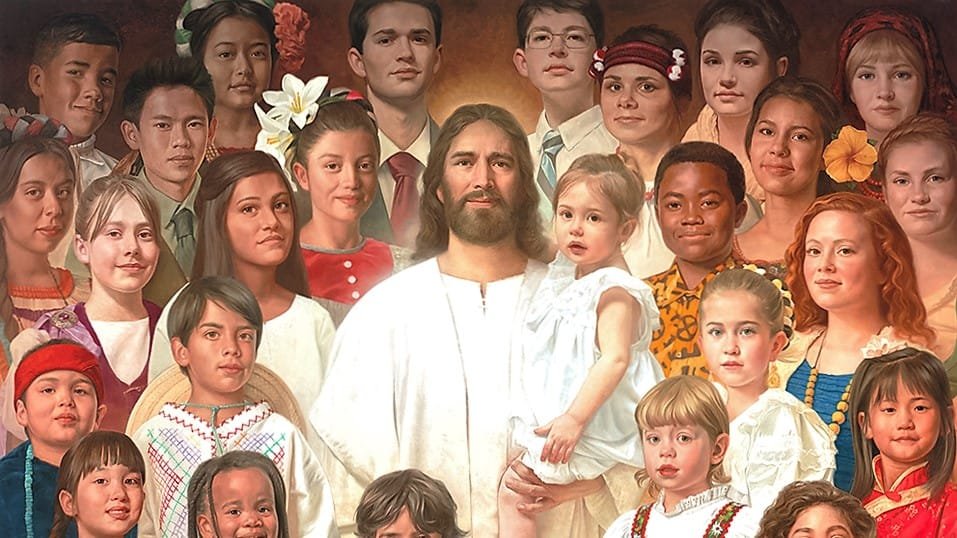DAILY MASS, GOSPEL AND COMMENTARY: THE LITTLE ONES AND THE LOST SHEEP
(Mt 18:1–5, 10, 12–14).
(Mt 18:1–5, 10, 12–14).
Gospel of Tuesday, 19th week in Ordinary Time (Mt 18:1–5, 10, 12–14)
The disciples approached Jesus and said, “Who is the greatest in the Kingdom of heaven?” He called a child over, placed it in their midst, and said, “Amen, I say to you, unless you turn and become like children, you will not enter the Kingdom of heaven. Whoever becomes humble like this child is the greatest in the Kingdom of heaven. And whoever receives one child such as this in my name receives me.
“See that you do not despise one of these little ones, for I say to you that their angels in heaven always look upon the face of my heavenly Father. What is your opinion? If a man has a hundred sheep and one of them goes astray, will he not leave the ninety-nine in the hills and go in search of the stray? And if he finds it, amen, I say to you, he rejoices more over it than over the ninety-nine that did not stray. In just the same way, it is not the will of your heavenly Father that one of these little ones be lost.”
Gospel Commentary from the Navarre Bible, Commentary to the Gospel of St. Matthew (with permission)
- 1-6 Clearly the disciples still suffer from human ambition: they want to occupy key positions when Jesus comes to establish his Kingdom on earth (cf. Acts 1:6).
- To correct their pride, our Lord shows them a child and tells them that if they want to enter the Kingdom of heaven, they must decide to be like children: children are incapable of hating anyone and are totally innocent of vice, particularly of pride, the worst vice of all. They are simple and full of trust.
- Humility is one of the main pillars of the Christian life: “If you ask me”, St Augustine says, “what is the essential thing in the religion and discipline of Jesus Christ, I shall reply: first humility, second humility and third humility” (Letter 118).
- 3-4 Applying these words to our Lord’s virtues, Fray Luis de Granada makes the point that humility is superior to virginity:
- “If you cannot imitate the virginity of the humble, then imitate the humility of the virgin. Virginity is praiseworthy, but humility is more necessary. The former is recommended to us, the latter is an obligation for us; to the former we are invited, to the latter we are obliged.
And so we see that the former is celebrated as a voluntary sacrifice, the latter required as an obligatory sacrifice. Lastly, you can be saved without virginity, but not without humility” (Suma de la vida cristiana, book 3, part 2, chap. 10).
- “If you cannot imitate the virginity of the humble, then imitate the humility of the virgin. Virginity is praiseworthy, but humility is more necessary. The former is recommended to us, the latter is an obligation for us; to the former we are invited, to the latter we are obliged.
- 5 Receiving a child in Jesus’ name is the same as receiving Jesus himself because children reflect the innocence, purity, simplicity and tenderness of our Lord, “In children and in the sick a soul in love sees Him” (St. Josemaria, The Way, 419).
- 10 Jesus warns that giving scandal to little children is a very serious matter, for they have angels who guard them who will plead a case before God against those who led them to commit sin.
- In this context he speaks of children having guardian angels. However, everyone, adult or child, has a guardian angel. “By God’s providence angels have been entrusted with the office of guarding the human race and of accompanying every human being so as to preserve him from any serious dangers…. Our heavenly Father has placed over each of us an angel under whose protection and vigilance we are” (Catechism of the Council of Trent, IV, 9, 4).
- This means that we should have a trusting relationship with our guardian angel. “Have confidence in your guardian Angel. Treat him as a lifelong friend — that is what he is — and he will render you a thousand services in the ordinary affairs of each day” (St. Josemaria, The Way, 562).
- 11-14 This parable clearly shows our Lord’s loving concern for sinners. It expresses in human terms the joy God feels when a wayward child comes back to him.
- Seeing so many souls living away from God, Pope John Paul II comments: “Unfortunately we witness the moral pollution which is devastating humanity, disregarding especially those very little ones about whom Jesus speaks.
- “What must we do? We must imitate the Good Shepherd and give ourselves without rest for the salvation of souls. Without forgetting material charity and social justice, we must be convinced that the most sublime charity is spiritual charity, that is, the commitment for the salvation of souls. And souls are saved with prayer and sacrifice. This is the mission of the Church!” (Homily to the Poor Glares of Albano, 14 August 1979).
VIDEO COMMENTARY ON TODAY’S GOSPEL
Topic: Why do children rebel against their parents and authority?
AUG. 11, 2020: HOLY MASS
